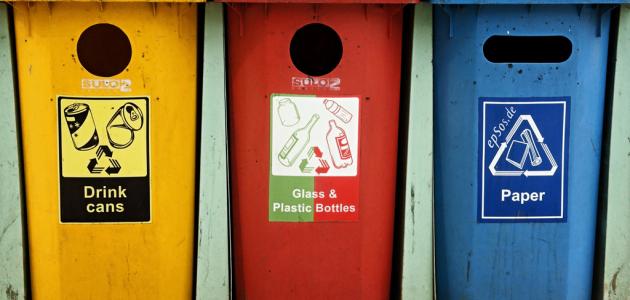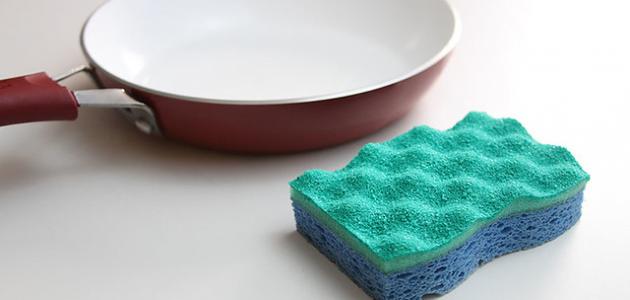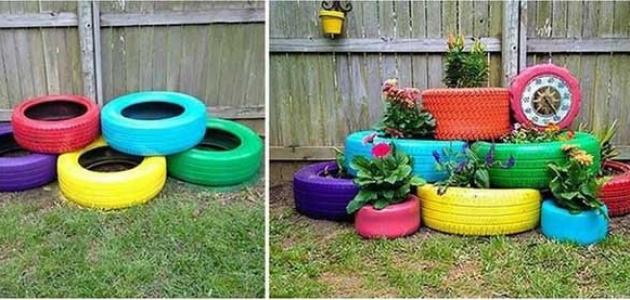Waste
Any human activity results in waste or waste that differs in quality and location according to the type of human activity, whether it is industrial or domestic activity. More than once, these materials pose a threat to the health of living organisms, and the first people affected by them are the cleaners and the workers in charge of burning them, in addition to harming the health of individuals if they accumulate in an area, and therefore they must be dealt with in an appropriate manner and as quickly as possible.
This waste, which is called waste, varies into several types, namely: household waste, industrial waste, and nuclear waste, and nuclear waste is the most dangerous of them; As it causes great damage, its effect remains over the years depending on the half-life period of the elements included in its composition. As for industrial waste, it is that which results from various industries. As for the degree of its severity, it depends on the type of industry, such as: metallurgical industry or chemical industries, and metallurgical industries produce many Of harmful heavy metals, such as: lead, zinc, and copper, which result in harmful oxides for living organisms, whether human, plant, or animal. As for household waste, which is the focus of discussion in this article, it is waste produced from domestic use, such as waste Food, and this waste rots quickly because it contains organic materials that emit an unpleasant odor, and insects that transmit diseases multiply around them, and therefore it was necessary to dispose of them and treat them quickly and away from the areas inhabited by the population.
Read also:How to clean the ovenThe waste problem did not have much of an impact in the past. Where people did not use industrial materials to a large extent in their lives, so they used to wrap their foods with plant leaves such as banana leaves, and use yellow squash as containers, or use clay containers instead of plastic containers, and today the waste problem is of great importance; As many commodities are wrapped in metal cans or plastic containers, which do not decompose quickly like natural materials, but rather take a very long time, and waste has increased at the present time due to the increase in population numbers, and the high standard of living resulting from industrial and agricultural development, in addition to not following the correct means. Waste disposal and treatment.
Management and management of household waste
The disposal of household waste and making use of it as much as possible is a matter that requires a great effort, and this effort is not limited to a specific group of people, but rather it includes various groups of society and the secretariat of each city, in addition to the government’s efforts to enact laws for economic and health dealings with Household waste, and investors in the field of waste recycling also have an important role. As for the role of community members, it is evident in reusing plastic bags instead of throwing them, and they must put waste in designated places. For example, there are some countries that separate types of waste, and each It is also possible to organize the so-called household sorting of waste, which expresses the classification of its types according to the source it is made of, and the placing of special containers in front of the houses, each of which differs in shape and color according to the type of waste thrown into it; This reduces the cost of waste treatment in general and makes it more economical.
Read also:How to clean the kitchen hood of fatRecycle household waste
Reuse of containers
It is possible to benefit from boxes, bottles, and bags by reusing them more than once for several purposes before being disposed of, which constitutes one of the solutions for recycling household waste; For example, empty glass containers can be used again to store some needs or leftover food, taking into account that they did not previously contain toxic substances. Plastic containers can also be used for storage as long as they are in good condition, and other options.
Recycle leftovers
The option of recycling inedible food residue is one of the best options that help in the process of recycling household waste, and among these residues are eggshells, tea bags and other vegetable peels that are not eaten, and it is possible to choose between several strategies to benefit from these residues such as collecting them to turn them into compost, Or creating a so-called worm farm, or even converting it into mulch for cultivation. All of these methods benefit the home garden.
Cans and cartons
Most of the boxes and cartons used at home can be used to make shapes, figures and various games, such as:
- Making different toys and figures from CDs, and children can be involved in making and decorating them as they wish.
- Cut the bottom zigzag part of the plastic bottles, and color them into roses for decoration.
- Use of metal cans for farming.
- Make binoculars for children by sticking a tissue cylinder, or make houses for games out of them.
- Cut out the squiggly lines from the egg carton, and color them in to make a beautiful painting of roses.
Other means of waste recycling
It is possible to take advantage of home furniture in good condition by donating it to charities, or selling it to used furniture stores, or even antique shops, and it is also possible to take advantage of Internet sites as a marketing method that may help in this sale process, in addition to that, some household items Others, such as cups, crockery, pyrex containers and the like, can be dealt with in the same way, or donated to friends or family, and one of the ways that is considered a means of recycling household waste is buying used items as well, either if the unused pieces are broken or If they are damaged in a way that prevents them from being used, it is possible to cooperate with the local council to collect them and transfer them to recycling stations.
Read also:How to clean old brassClassification of household waste
Household waste is classified into long-term household waste and short-term household waste, and the following is a simplified explanation for each of them:
short-term household waste
It is waste that results from human activity and is disposed of on a daily basis. Examples include:
- Food waste: It consists of placing unconsumed food in a landfill. It also includes food waste, such as: fruit peels, meat bones, vegetable peelings, grains, and so on.
- paper waste: It consists of various types of papers that people use in their daily lives, such as book and magazine papers, writing papers, and tissue paper.
- plastic waste: It is represented in utensils made of plastic, such as spoons, cups, and dishes, which are used by individuals instead of using glassware. This type of waste differs from paper waste and food waste in that plastic does not decompose completely, and even some types of plastic waste can remain as they are. on him.
- Glass and metal waste: It is represented in glass bottles and metal cans in which foodstuffs are packed, taking into account health issues, such as preventing food from rotting or oxidizing; As it is considered easy for gases to pass through the walls of plastic containers, thus damaging the foodstuffs packaged in them.
- Other types of household waste: Among the types of waste generated in the house is also wastewater resulting from human daily practices, in addition to waste from gardens such as fallen leaves, which can be used as natural organic fertilizer after mixing it with food residues to fertilize the soil.
long-term household waste
It is waste that is formed over a long period of time, ranging from several weeks to a few months. It includes refrigerators and various electrical appliances in the home, in addition to furniture, kitchen utensils, and various electronic devices. Most of this waste can be reused economically.
Reasons for waste recycling
There are a number of reasons for recycling waste around the world, most notably:
- Reducing the amount of waste in landfills.
- Reducing pollution resulting from landfilling.
- Reducing the depletion of natural resources.
- Less energy consumption than manufacturing energy.









